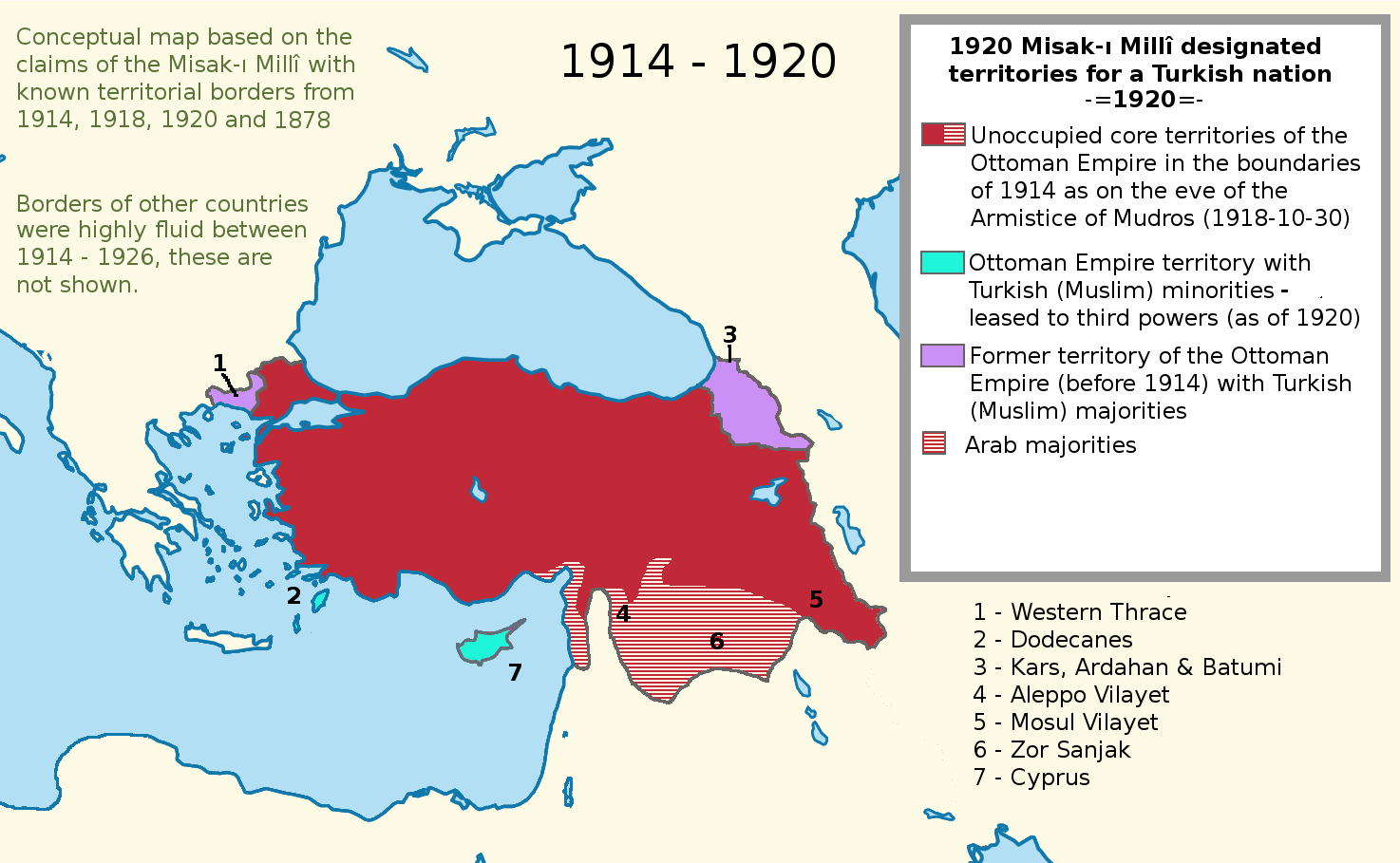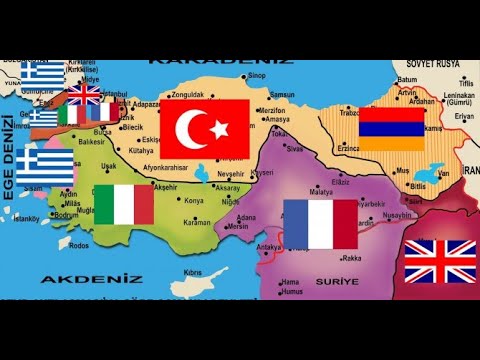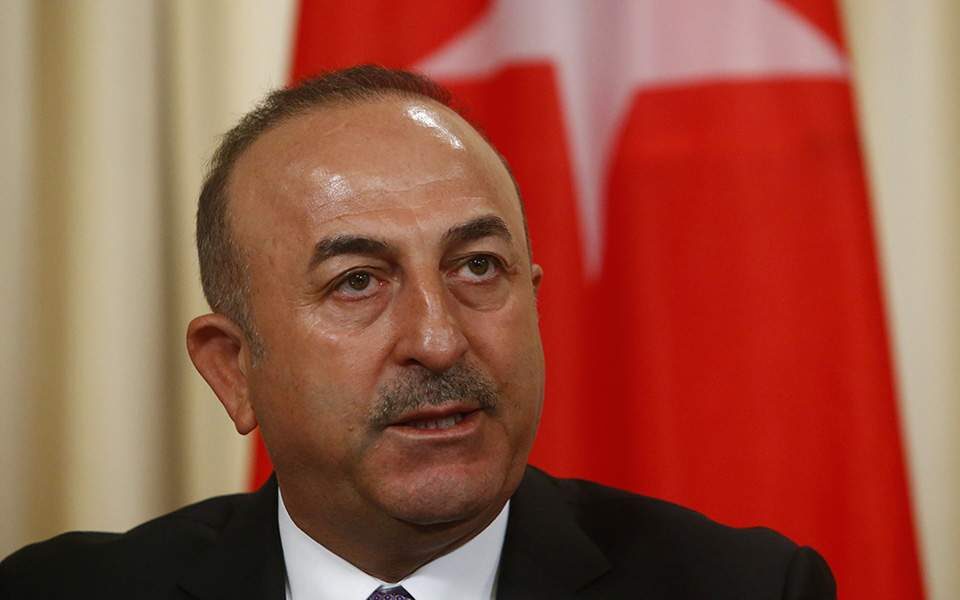Akritas
FULL MEMBER

- Joined
- Feb 1, 2022
- Messages
- 878
- Reaction score
- 0
- Country
- Location
Misaki Milli is the last decision taken in the last Ottoman parliament in 1920, and it is the set of principles that determine the borders of the Turkish state. Its content is available on the Internet in English. These decisions were later accepted exactly at the Sivas Congress (the beginning of the Turkish War of Independence). By its nature, it complies with Wilson's principles. It envisages the right of self-determination to peoples.
If it is desired to make a map in the light of the determined principles; As of 1920, a map appears as follows.

However, these borders could not be reached after the Turkish War of Independence.
-Hatay joined the country with a plebiscite.
-However, in the plebiscite of Western Thrace, Turkiye supported the region to remain in Greece due to the conditions at that time.
-The Cyprus problem, which England illegally occupied, never came to the fore, because the British used the Mosul problem and the straits problem as leverage.
-Batumi was also left to the Russians, in return the Bolsheviks supported the Turkish War of Independence.
Currently, our Misaki Milli is the lands we own.
The reason that reveals the principles of Misaki Milli is the map below.

This is not an imaginary map, it had been tried but defeated. Hundreds of thousands of Turkish civilians were subjected to massacres in these waves of occupation.
Misak-i Millî or the National Pact was a strategy of six key decisions adopted by the Ottoman Parliament in 1920. According to the National Pact, Turkey claimed territories stretching from....
- Eastern Thrace, now part of Greece
- North Bulgaria
- Cyprus,
- eastern Aegean islands,
- parts of northern Syria, northern Iraq,
- the entirety of modern Armenia,
- parts of Georgia,
- parts of Iran
“We presented our work called ‘Our National Oath (Misak-ı Milli) in seas’ to our leader,”
But is not only Greece.
- On August 8, 2011, Erdogan, said: “Syria is not an external issue, but rather an internal Turkish affair.
- On January 11, 2018, Erdogan said: "Northern Syria was within the limits of the Melli Charter...".
- In October 2016, after the Iraqi government refused Turkey’s participation in the operation to liberate the city of Mosul in northern Iraq from ISIS, Erdogan responded to the Iraqi decision by saying, “They should read the Milli Charter to understand the meaning of Mosul for us...Mosul was for us".
- Also said: "As we live through the events in Syria and Iraq, the new generation must know something very well. It is amazing what the Milli Pact is, we must know this well. If we study the Milli Pact and if we understand the Milli Pact, we understand well our responsibility in Syria and Iraq, And if we say we have a responsibility in Mosul, then for that we have to be at the table and in the field, and for this there is a reason.Unfortunately we could not protect our religious pact on our western or southern borders, they wanted to lock us inside a shell, and this concept we reject, they want Since 1923 they have imprisoned us in this concept in order to make us forget our Seljuk and Ottoman past"
The borders of modern Turkey were drawn after WW1, in the 1923 Lausanne Treaty.
Erdogan and the ultranationalist MHP have questioned the treaty’s validity, throwing Turkey’s commitment to its key aspects into doubt.
Both promoting the revival of the “borders” of the National Oath of February 1920 that lays claim to lands now belonging to Turkey's southern and western neighbours.







